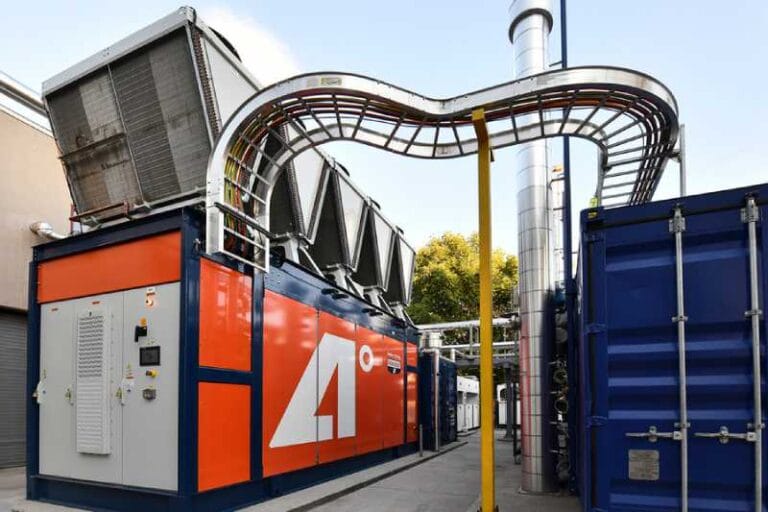Bitcoin Asia in Hong Kong

The Bitcoin Asia conference, held in Hong Kong, attracted a staggering crowd of over 5,500 attendees, with an estimated half of them hailing from mainland China. This overwhelming interest from the mainland is remarkable, given the strict ban on commercial cryptocurrency trading imposed by Chinese authorities.
The conference’s organizers, BTC Inc, attribute this influx to Hong Kong’s recent launch of spot bitcoin and ether exchange-traded funds (ETFs) and the explosion of interest in layer 2 solutions. Layer 2 networks are secondary blockchain layers designed to enhance scalability and efficiency, offloading computations to less congested chains.
David Bailey, CEO of BTC Inc, expressed his belief that Hong Kong’s introduction of crypto ETFs was a deliberate move, indicating the city’s acknowledgment of bitcoin’s permanence. “There’s no way that Hong Kong just accidentally stumbled into launching an ETF … It wasn’t random,” he stated.
The unique feature of Hong Kong’s crypto ETFs, allowing in-kind subscriptions with bitcoin and ether, has been hailed as a significant advantage by investors. This capability enables them to use the ETF shares as collateral for loans, a crucial aspect in the crypto realm. The managers of these ETFs, Harvest Global and ChinaAMC, have affirmed their commitment to pushing ahead with the collateralization of their ETF products in Hong Kong.
The Hong Kong government’s active support for the conference and its broader embrace of Web3 events underscores its ambition to position the city as a crypto hub. Bailey commended the government’s efforts, stating, “I think they see bitcoin as a massive opportunity for Hong Kong.”
While the Bitcoin Asia conference pales in comparison to its U.S. counterpart, which typically attracts around 30,000 attendees, the turnout in Hong Kong exceeded expectations. The organizers are already exploring options for next year’s event, including discussions with Hong Kong authorities about hosting it at the prestigious Convention and Exhibition Centre in Wan Chai.
The conference’s strong mainland Chinese presence reflects the broader fascination with bitcoin-related technologies in the region, despite the government’s crackdown on mining activities in 2021. Ben Gagnon, chief mining officer at Canada-based Bitfarms, expressed optimism that Hong Kong could serve as a “conduit for Chinese investors” to access bitcoin-related technologies, potentially mitigating the impact of the real estate crash and stock market slump in China.
“What I’m optimistic about is, with these rules and these regulations now in place, Hong Kong actually may find a way to be this bridge for China to bitcoin and to the greater crypto ecosystem in a way that’s more safe, more controlled or regulated,” Gagnon stated.
The layer 2 innovation on display at Bitcoin Asia was a major draw for attendees, particularly Chinese developers showcasing their own layer 2 network solutions. Bailey acknowledged the excitement surrounding these emerging technologies, stating, “There is an explosion of innovation happening in bitcoin right now.”
However, he also cautioned about the inherent risks in this space, likening it to the “wild, wild west” of layer 2 bitcoin development. “Some of these ideas are going to be famous companies a decade from now; some of these are gonna go to zero,” he warned.
The massive interest from mainland China, despite the country’s crypto trading ban, highlights the growing allure of bitcoin and blockchain technologies in the region. Hong Kong’s embrace of crypto ETFs and its broader support for the industry have positioned the city as a potential gateway for Chinese investors to gain exposure to these emerging technologies.
However, the path forward is not without challenges. Regulatory uncertainties and the volatility inherent in the crypto space will continue to shape the industry’s trajectory. As Hong Kong navigates its ambition to become a crypto hub, striking the right balance between fostering innovation and mitigating risks will be crucial.
The Bitcoin Asia conference serves as a testament to the enduring fascination with bitcoin and blockchain technologies, even in regions where regulatory hurdles remain formidable. As the industry continues to evolve, events like these provide a platform for developers, investors, and enthusiasts to explore the boundless possibilities of this nascent technological revolution.






